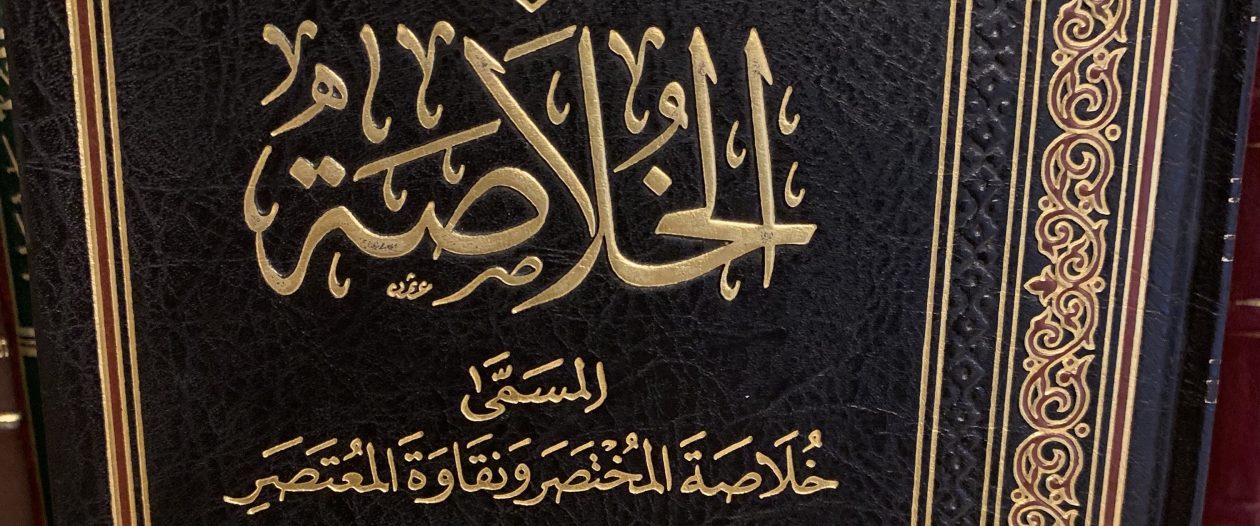On Secondary Sources
Al-Ghazālī: A Mirror in which Others See Themselves
Al-Ghazālī is one of those personalities on whom much has been written. As with biographies of all great figures, the image gets confused with the man. Merrill D. Peterson, who wrote on Thomas Jefferson, astutely observed “… that the historical Jefferson could never be truly discovered.” This is also true of al-Ghazālī. When reading many of the biographies on al-Ghazālī, one can get lost in the forest because of the trees (mountain of details), as these works deal more with “what history has made of him” than “what history he made.” Thus al-Ghazālī becomes a mirror for those who write about him and his life. The reader ends up knowing more about the biographers than about al-Ghazālī. Each author brings his/her own prejudices and agendas to the table, all depending on the biographersʼ social and cultural baggage. Simply stated, there isn’t an unbiased biography of al-Ghazālī.
For example, Modern biographers who lived in oppressive societies mirror this in their writing on al-Ghazālīʼs life. Al-Ghazālī is then portrayed as an oppressed minority suffering in an oppressive majority state. If the biographer has suffered censorship, al-Ghazālī is portrayed as agent of the state, a mouthpiece for the body politic. If the biographer was criticized by the conservative religious scholarship, al-Ghazālī is then portrayed as representative of that religious body and against the freedom of expression. Al-Ghazālī is presented as either a representative of the state or a representative of free scholarship.*
Conversely, if the biographer likes al-Ghazālī and is enamored with him, al-Ghazālī is then portrayed as a beacon of freedom of thought, a creative free thinker, a defender of the faith, a spiritual guide, a philosopher of the age, etc.
Modern biographies of al-Ghazālī tend to be of the variety mentioned above; for this reason I recommend that readers utilize the early source material on al-Ghazālī’s life whenever possible, as these are closer in time to al-Ghazālī’s age and have access to sources that are no longer extant or available to us first hand.
Unfortunately, this does not mean that early authors were completely immune to similar pitfalls. With that said, at least their prejudices are well known.
Back to Peterson, whose observations on Jefferson can easily be true of al-Ghazālī:
His life exhibited seemingly bewildering conflicts and contradictions, and it is not easy to resolve these elements in the flow of experience. He was a prodigy of talents. The tributaries of his mind ran in all directions. To trace their channels into the main stream is only half the problem, for the terrain itself belongs to another intellectual world, which challenges understanding on its own terms and yet must be translated into the grammar of our own time.
* Just because he was appointed a teacher in school (Niẓāmiyya of Baghdad for four years 484/1091-488/1095) and left on his own accord. The school was founded by a Seljuk vizier (Niẓām al-Mulk al-Tusi d. 485/1092)a powerful second level government official. The school had many illustrious teachers such as Abū Isḥāq al-Shīrāzī (d. 507/1083) first teacher appointed to teach after it opened its doors, the eminent Abu al-Qāsim al-Qushayrī (d.465/1072) and, al-Ghazālī’s teacher al-Juwayni (d.478/1085) where he studied with them him and who were not accused as state agents. It’s as if you do your graduate work at UC Berkley and get a position at UCLA.
